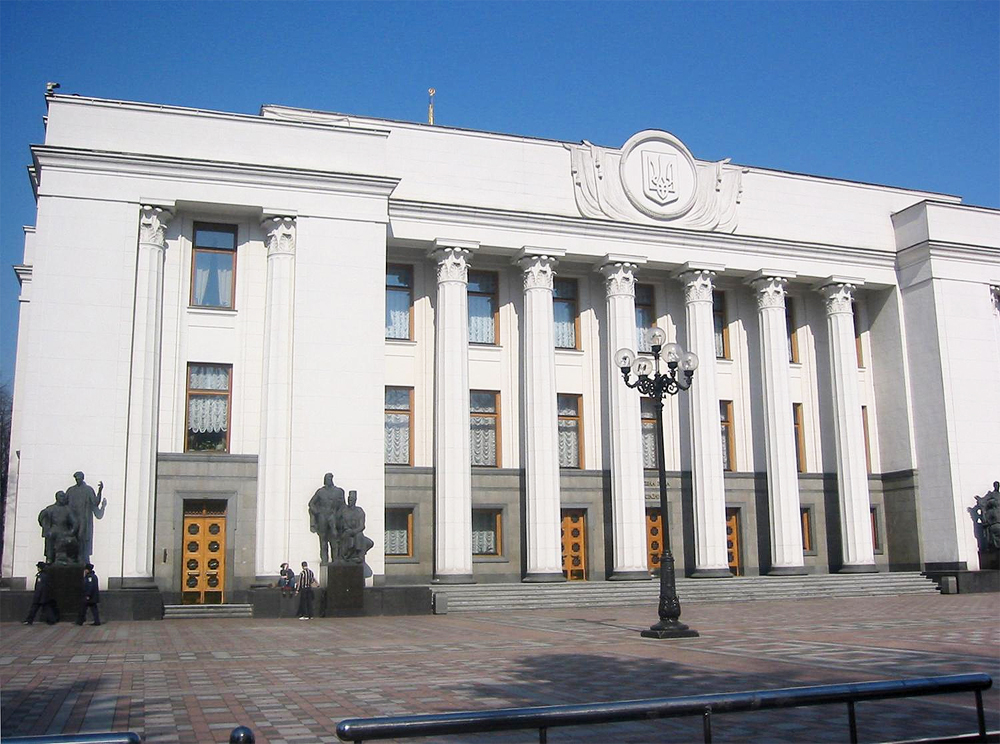Ukraine’s parliamentary elections could pave way for new constitution

(Business New Europe – bne.eu – Graham Stack in Kyiv – October 24, 2014) Ukraine is to go to the polls on October 26 in early elections likely to give forces supporting President Petro Poroshenko a strong majority in the parliament, paving the way for sweeping constitutional reform.
“This should be a constitutional majority,” said Poroshenko, out campaigning in the central Ukrainian town of Cherkassy on October 20, “because my reform program will involve constitutional changes”.
Poroshenko enjoyed a landslide victory in presidential elections in May 2014, taking 55% of the vote in the first round of voting. Coming to power as an independent politician and businessman, he founded his own party, Petro Poroshenko Bloc, on August 27, and simultaneously called snap parliamentary elections for October 26. The party is identified in the eyes of voters with the man, with the party programme running to just over a page of generalisations, most of which boil down to a platform for constitutional reform – which requires a constitutional majority.
It’s looking increasingly like Poroshenko will get his wish. Latest opinion polls predict his party Petro Poroshenko Bloc will take 20-33% of the votes, with the next largest four-five parties possible coalition partners with broadly aligned policies. Most of the fragmented opposition parties are unlikely to cross the 5% threshold needed to enter parliament, leaving Poroshenko with broad sway over the house.
“Yes, this will mean a new constitution,” says Maryna Stavniychuk, presidential aide for constitutional and legal modernisation until October 21, who said she expects Poroshenko to obtain a constitutional majority in the new parliament. “Ukraine needs a new constitution, ” Stavnichuk told bne, referring to the revolutionary circumstances under which Ukraine reverted from a presidential constitution to an earlier parliamentary-presidential constitutionon on February 22, 2014, in the process of ousting former president Viktor Yanukovych.
“But the new constitution as planned by Poroshenko will again strengthen the power of the president, a fact that the Venice Commission [a European Council body that advises European countries on constitutional reform] has criticised,” says Stavnichuk. The verdict of the Venice Commission on Poroshenko’s constitutional reform plans is only to be published after the elections.
Poroshenko wants a stronger role than currently exists for the president in choosing a candidate for prime minister to be approved by parliament, according to the bill for constitutional reform filed with parliament in June. He also wants that only the president can fire key justice and law enforcement officials, powers currently held by parliament.
Poroshenko is also proposing to abolish parliamentary immunity from prosecution on both national and local levels. “My dream is that among the first initiatives of the Rada will be the abolition of parliamentary immunity,” Poroshenko said in Lviv on October 6. Parliamentary immunity in Ukraine has in the past been widely abused as protection for corrupt politicians, oligarchs and outright criminals. “Ukrainian presidential candidates have often proposed this in the past,” says Stavniychuk, “but it has never got through the Rada, for obvious reasons. But perhaps this time will be different.”
Critics say other proposed amendments could also increase presidential influence over parliament, by permitting the large number of independent MPs to participate in forming a coalition, and also by allowing MPs to leave their party group without surrendering their seat in parliament – both moves that can strengthen executive influence over coalition formation, by weakening the role of party groups.
If the constitutional changes go through parliament before the end of the year, this would make for Ukraine’s third constitution in the course of one year. But experts believe such speed is unlikely. “This will all take time and the constitutional reform package won’t get passed until 2015,” says Vladimir Fesenko, head of the Penta think tank. Poroshenko’s most radical proposals are likely to be diluted in the process of negotiations. “To obtain a coalition with a constitutional majority, Poroshenko will have to make concessions to other parties, which will involve diluting all proposals to suit parliament,” Fesenko says.
The most radical part of Poroshenko’s constitutional reform plans is for a Polish-style decentralisation involving abolition of state executive power in the regions, currently in the form of governors appointed by the president, in favour of elected local government bodies. “Executive power will no longer belong to governors appointed from above but executive committees formed by the local councils, elected by the people,” Poroshenko’s party says in its election manifesto. Poroshenko has promised that up to 60% of taxes could stay in the region to finance the work of local governments.
Critics however fear the result could be a strengthening of presidential power, with the presidential staff de facto running regions directly from Kyiv. “This is phantom decentralisation,” says Mustafa Naiem, a journalist who is now running as a candidate for Poroshenko’s party. In particular the creation of the new office of presidential representative to replace governors, appointed by the president with power to veto or dissolve the local councils, could mean the president retains direct power in localities. “Terms change and state administration turns into presidential representatives without there being any factual transfer of powers to the provinces,” according to Tymofiy Mylovanov, assistant professor of economics at the University of Pittsburgh.
“This is not really the time for decentralisation,” admits Stavniychuk, “because there is factually a war on in one part of the country, and too swift decentralisation could play into Russia’s hands.”
